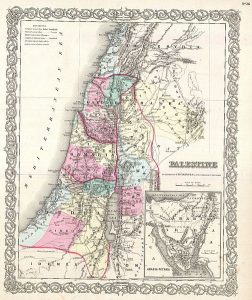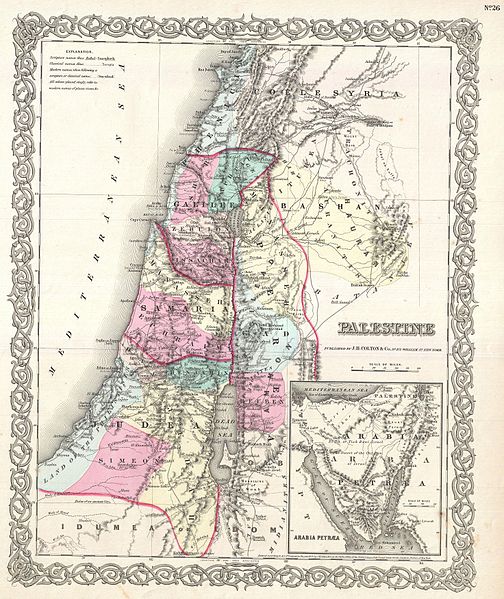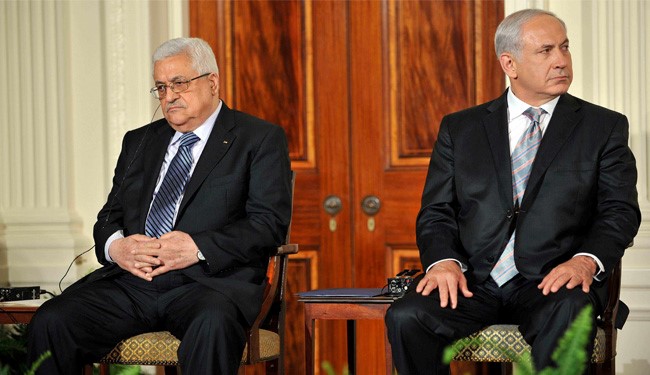
By: Alex Boylston
When one thinks of the State of Israel, one of its many nicknames that comes to mind is “the Jewish state.” This makes sense as it was established through a series of handovers and UN legislation as a homeland for the Jewish people. These Jews had been in exile for nearly 3,000 years and many yearned for a homeland, which led to the creation of Zionism and the desire for a Jewish state.
The early Zionists in the late 19th century naturally picked the biblical land of Israel, then currently a part of the Ottoman Empire, as the theoretical home of this new Jewish state. However, during World War I, the Ottoman Empire joined the side of the Central Powers and thus took a great defeat at the hands of the Allied Powers. The United Kingdom, part of the Allied Powers, promised the Arabs in the Ottoman Empire their own state since the Arabs had been languishing under the Turk-ruled Ottoman Empire.
After the war ended, the UK did not grant the Arabs their own state as promised but instead separated the defeated empire. The French ruled Syria and the British took control of an area known to many as the British Mandate. This included land called Trans Jordan (now present-day Jordan) and Palestine (present day Israel, West Bank, and the Gaza Strip). The British, who had officially endorsed Zionism with the signing of the Balfour Declaration in 1917, came up with an arrangement for both Jews and Arabs who wanted their own countries in this British Mandate. Jewish settlement was permitted in the land of Palestine while Jordan was reserved exclusively for Arabs, although Arabs could still settle in Palestine or remain there if they had residences in the area.
However, when World War II began, the UK, financially strained due to war efforts, turned the question of sovereignty of the territory of Palestine over to the newly formed United Nations after the war ended. The U.N. produced a partition plan of Palestine that would give Jews slightly more land than Arabs in the area. This solution was seen as a victory for Zionists but an outrage to the Arabs who had been promised a state before the Balfour Declaration was signed. Because of the Arab dissatisfaction with the plan, the UK refused to enforce the plan and declared that British rule over the territory would end on May 14, 1948. It was on that day that David Ben Gurion, the first Prime Minister of Israel, declared the Jewish state of Israel to be independent. The United States immediately recognized Israel and sent support to the de facto government of the territory and, less than a year later, Israel was admitted to the United Nations after gaining more territory than was originally allotted by the UN. It was a victory for Zionists and, supposedly, Jews everywhere.
May 15, 1948, however, the day after Israeli independence, is remembered differently by non-Zionists. In the Arab world, this day is known as al-Nakbah, which translates as “the catastrophe.” It was a day in which newly formed Israeli forces, aided by the United States, invaded the land of Palestine and forcibly removed 700,000 Palestinians from their homes to make room for the new Jewish settlers in the State of Israel. Those removed comprised almost 80 percent of the indigenous Palestinian population and their relocation was the cause of the 1948 Arab-Israeli War in which neighboring states sent troops to combat the Israeli Army. In Israel, it is remembered as an attack on Israeli territory for religious reasons since this newly formed state was founded in a land promised to Abraham and his people over 4,000 years ago. Therefore, when one speaks about attacks on Israel, those attacks are automatically labelled as attacks motivated by anti-Semitism due to Israel’s self-declared status as “the Jewish state.” But, to really understand opposition to Israel, it is imperative to look past emotions and instead turn to facts.
Many Zionists, Jewish and non-Jewish, point to certain passages in the Torah to validate the argument for supporting Israel, such as Genesis 12:1-3, in which God commands Abraham to “go forth… to the land that I will show you.” This land is Eretz Yisrael, or the Land of Israel. It continues to state that God will make it a “great nation,” bless those who bless it, and curse those who curse it. In a literal sense, this means Eretz Yisrael is a land promised by God to Abraham for the Jewish people exclusively, and that it should be unconditionally supported by others lest they incur God’s wrath. So, by this logic, a Jewish state in the biblically-defined Land of Israel should be hailed as something decreed by God over 4,000 years ago and an unquestioned prophecy.
But this passage is taken out of context quite severely by Zionists to justify the existence of modern day Israel. In Deuteronomy, another book in the Torah, Moses reveals to his people that God will “uproot… them [Jews] from their soil [Israel] in anger, fury, and great wrath, and cast them into another land.” In the next chapter, Moses states that God himself alone will redeem the Jewish people from their sins and bring them back from the “various nations to which the Lord your God has banished you.” In 586 BCE, the Jews were indeed exiled from Eretz Yisrael by Nebuchadnezzar of Babylonia and the Second Temple was destroyed, leading to the Jews beginning their existence in a diaspora without a central temple. According to Jewish scholars, this exile was a fulfillment of the prophecies in Deuteronomy because the Jews had been disobedient to God and incurred His wrath as a result. Now the Jewish people were exiled by divine decree and, according to the Torah and Talmud, the only one who can bring them out of exile is moshiach, the Messiah, a human descended from King David who would bring the Jewish people out of exile, build a Third Temple, and rule by divine decree in Eretz Yisrael.
Naturally, due to these revelations in the Torah, most Orthodox Jewish organizations believe that Zionism and the current state of Israel are “heretical” in nature and in fact an “open rebellion against God.” According to Rebbe Yoel Teitelbaum, a Hasidic rabbi from Hungary, “Those Jews living in the Land of Israel need G-d’s help to be saved from that group who are called ‘Zionists’ but whose true name and essence is heresy and denial of the Torah.” The Haredi group known as Neturei Karta describes Judaism and Zionism to be as different as “night and day.” This is because the idea of Zionism rejects the idea of divine redemption and the coming of moshiach, both of which are critical reasons as to why Jews are bound to obey the strict laws of the Torah in the first place. Also, according to the Talmud, the Jews may not take Eretz Yisrael by force or delay the coming of moshiach by sinning, both of which the Jews in Israel have done.
Modern sects of Judaism such as Reform Judaism outright reject the coming of moshiach and the validity of the Talmud. According to the Jewish theologian Maimonides, “Anyone who does not believe in him [moshiach], or whoever does not look forward to his coming, denies not only the other prophets but also the Torah and of Moses our Teacher.” In the United States, people who speak out against Israel are often labelled as “anti-Semitic” since it is a “Jewish state” and Israel is supported by the U.S. government in seemingly all circumstances. Based on these revelations, it is imperative to realize that anti-Zionism is not the same thing as anti-Semitism since most Orthodox Jews oppose Zionism. It may be time Israel’s status as a “Jewish state” is re-examined carefully.


